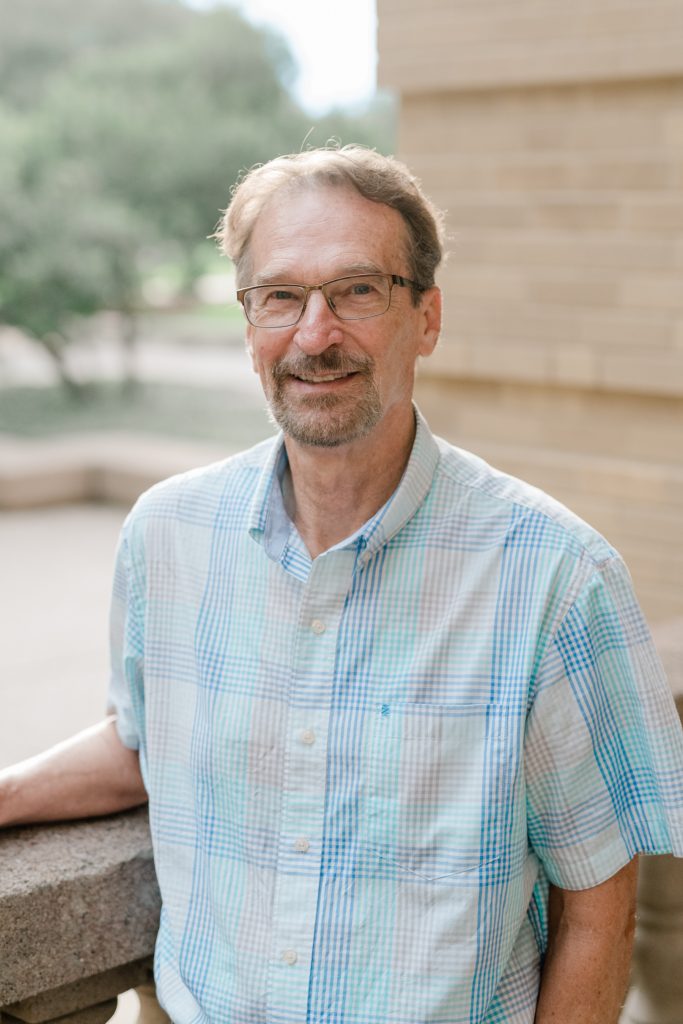Biography
Harland Prechel is Professor of Sociology, College of Liberal Arts Cornerstone Fellow, and Energy Institute Fellow at Texas A&M University. His primary areas of research are the corporation, economic sociology, political sociology, and environmental sociology. Prechel’s research program focuses on corporate-state relations with particular focus on state power and corporate power. There are two interrelated themes in his current research: How corporate-state relations and corporate characteristics affect financial malfeasance and environmental pollution. Prechel’s current research focuses on the effects of organizational and political-legal arrangements on environmental pollution with his most recent emphasis on greenhouse gas emissions and climate change. Prechel published articles on economic development, income inequality, and professional autonomy. Prechel’s books include Big Business and the State, State University of New York Press (2000) and Normalized Financial Wrongdoing: How Re-regulating Markets Created Risks and Fostered Inequality, Stanford University Press (2021), which is the recipient of the 2023 Midwest Sociological Society Distinguished Book Award. He is the former series editor of Research in Political Sociology. Prechel’s articles have appeared in American Sociological Review, Cambridge Journal of Regions, Economy and Society, Comparative Education Review, Political Power and Social Theory, Research in Political Sociology, Social Forces, Social Sciences Quarterly, The Sociological Quarterly, Sociological Forum, and Social Problems. He teaches Class in Contemporary Society, Organizational Theory, Political Sociology, and Classical Social Theory. Prechel’s awards include National Science Foundation grants, Fellow at the Glasscock Center for Humanities Research at Texas A&M University, and awards from criminology, management and sociology for his co-authored article on financial malfeasance. He has served as a reviewer for more than thirty-five scholarly journals, book publishers, and granting agencies.
Courses Taught at Texas A&M
- SOCI 230: Classical Sociological Theory
- SOCI 328: Environmental Sociology
- SOCI 419: Class In Contemporary Society
- SOCI 423: Globalization and Social Change
- SOCI 611: Classical Social Theory
- SOCI 616: Political Sociology
- SOCI 635: Complex Organizations
Office Hours
M: 1–2:30pm. Zoom Link
Research Interests
- Economic Sociology
- Political Sociology
- The Corporation
- Class
- Comparative and Historical Sociology
- Theory
Educational Background
- Ph.D. University of Kansas
Awards & Honors
- Awarded Midwest Sociological Society’s Distinguished Book Award, 2023.“Normalized Financial Wrongdoing: How Re-regulating Markets Created Risks and Fostered Inequality”. Palo Alto, CA: Stanford University Press.
- Awarded Outstanding Article Award, American Society of Criminology, 2012. “The Effects of Organizational and Political Embeddedness on Financial Malfeasance in the Largest U.S. Corporations: Dependence, Incentives and Opportunities.” American Sociological Review, 75:331-354. Harland Prechel and Theresa Morris.
- Awarded Best Published Paper Award. Organization and Management Theory Division of the Academy of Management, 2011. “The Effects of Organizational and Political Embeddedness on Financial Malfeasance in the Largest U.S. Corporations: Dependence, Incentives and Opportunities.” American Sociological Review, 75:331-354. Harland Prechel and Theresa Morris.
- Awarded W. Richard Scott Award for Distinguished Scholarship, Honorable Mention. Organizations, Occupations and Work Section of the American Sociological Society, 2012. “The Effects of Organizational and Political Embeddedness on Financial Malfeasance in the Largest U.S. Corporations: Dependence, Incentives and Opportunities.” American Sociological Review, 75:331-354. Harland Prechel and Theresa
Selected Publications
- 2022. “Climate Policy Conflict in the U.S. States: A Critical Review and Way Forward.” Climate Change,170, 32. Joshua A. Basseches, Rebecca Bromley-Trujillo, Maxwell Boykoff, Trevor Culhane, Galen Hall, Noel Healy, David J. Hess, David Hsu, Rachel M. Krause, Harland Prechel, J. Timmons Roberts, Jennie C. Stephens. https://doi.org/10.1007/s10584-022-03319-w.
- 2021. “Normalized Financial Wrongdoing: How Re-regulating Markets Created Risks and Fostered Inequality”. Palo Alto, CA: Stanford University Press. https://www.sup.org/books/title/?id=27374.
- 2021. “Neoliberal Organizational and Political-Legal Arrangements and Greenhouse Gas Emissions in the U.S. Electrical Energy Sector.” The Sociological Quarterly, 62 (2): 209-233. https://doi.org/10.1080/00380253.2020.1733450.
- 2020.“Conflict Theories in Political Sociology: Class, Power, Inequality, and the Historical Transition to Financialization.” In The New Handbook of Political Sociology, edited by Thomas Janoski, Cedric de Leon, Joya Misra, and Isaac William Martin. Cambridge University Press, with Linzi Berkowitz. https://doi.org/10.1017/9781108147828.009.
- 2016. “Do Organizational and Political-Legal Arrangements Explain Financial Wrongdoing? Harland Prechel and Lu Zheng. British Journal of Sociology, 67:655-677. https://doi.org/10.1111/1468-4446.12212.
- 2016. “From Market Enablers Participants to Market: Redefining Organizational and Political- Legal Arrangements and Opportunities for Financial Wrongdoing, 1930s-2000.” Harland Prechel and Dadao Hou. Pp. 77-112. In Organizational Wrongdoing. Edited by Donald Palmer, Royston Greenwood, and Kristin Smith-Crowe. Cambridge, UK: Cambridge University Press.
- 2016. “Disproportionality of Corporations’ Environmental Pollution in the Electrical Energy Industry.” Harland Prechel and Alesha Istvan. Sociological Perspectives, 59:505-527. Editor’s Pick. https://doi.org/10.1177/0731121416629991.
- 2016. “Organizational Political Economy and White-Collar Crime.” Pp. 294-325. In The Oxford Handbook of White-Collar Crime. Edited by Shanna R. Van Slyke, Michael L. Benson, and Francis Cullen. Oxford UK: Oxford University Press.
- 2015.“Organizational Political Economy and Environmental Pollution.” Sociology Compass, 9:828-840. https://doi.org/10.1111/soc4.12299.
- 2013. “The Effects of Organizational Characteristics and State Environmental Policies on Sulfur-Dioxide Pollution.” In U.S. Electrical Energy Corporations. (with George Touche). https://doi.org/10.1111/ssqu.12052.
- 2012. “Corporate Power and U.S. Economic and Environmental Policy, 1978-2008.” Cambridge Journal of Regions, Economy and Society, 5:357-375. https://doi.org/10.1093/cjres/rss002.
- 2012. “Corporate Characteristics, Political Embeddedness, and Environmental Pollution by Large U.S. Corporations.” Social Forces, 90:947-970. (with Lu Zheng). https://doi.org/10.1093/sf/sor026.
- 2010. “The Effects of Organizational and Political Embeddedness on Financial Malfeasance in the Largest U.S. Corporations: Dependence, Incentives and Opportunities.” American Sociological Review, 75:331-354. (with Theresa Morris). https://doi.org/10.1177/0003122410372229.
- 2003. “Historical Contingency Theory, Policy Paradigm Shifts, and Corporate Malfeasance at the Turn to the 21st Century.” Research in Political Sociology: Political Sociology for the 21st Century, 12:311-340. Amsterdam:Elsevier Press.
- 2002. “Capital Dependence, Political Behavior and Change to the Multilayered Subsidiary Form.” Social Problems, 49:301-326. (with John Boies).
- 1994. “Economic Crisis and the Centralization of Control Over the Managerial Process: Corporate Restructuring and Neo-Fordist Decision Making.” American Sociological Review, 59:723-745. https://doi.org/10.2307/2096445.
- 1990. “Steel and the State: Industry Politics and Business Policy Formation, 1940-1989.” American Sociological Review, 55:648-668. https://doi.org/10.2307/2096090.

